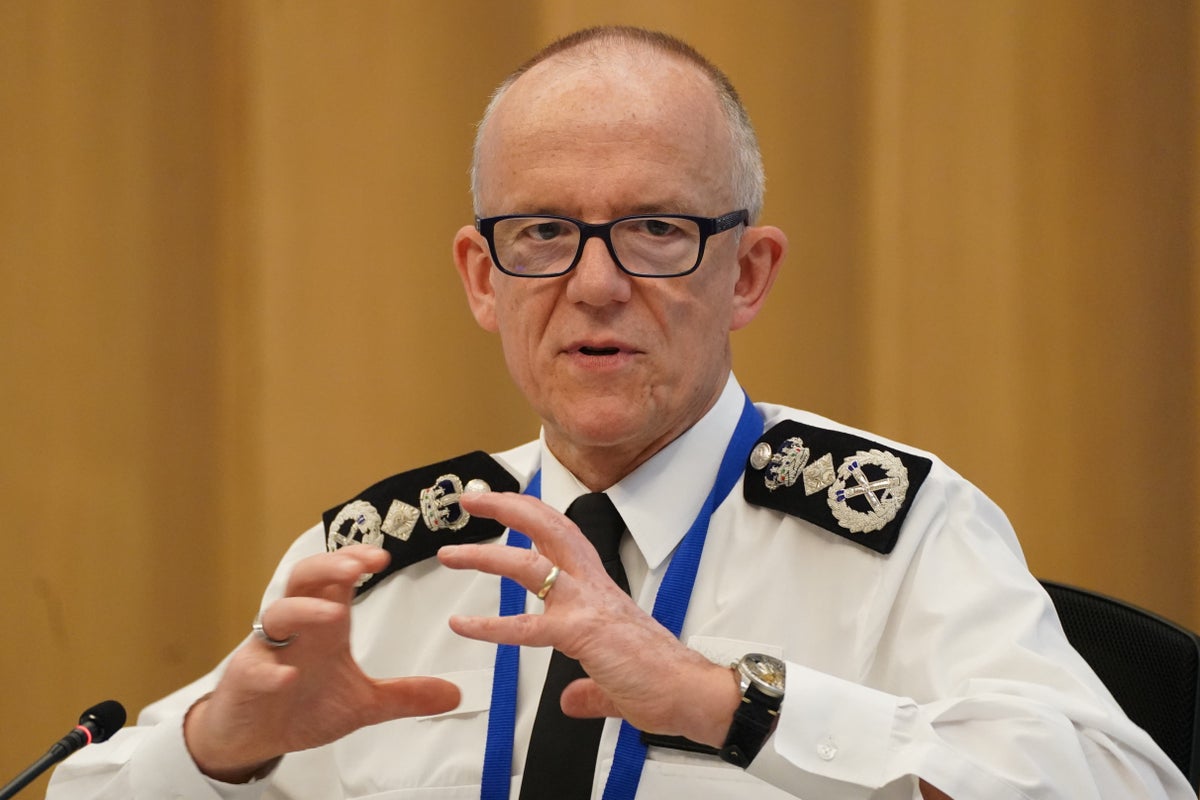
The Metropolitan Police Commissioner has said “well over 500” of his officers have been put on restricted duties and “several hundred” have been suspended following investigations into police standards.
Sir Mark Rowley also told The News Agents podcast that it should be easier to fire bad police officers.
He said it was was with a “heavy heart” that he chose not to describe the Met Police as institutionally racist after Baroness Louise Casey’s damning review into the force’s culture and standards.
The Casey Review, published in March, found the force to be institutionally racist, misogynist and homophobic in the wake of a series of scandals, including the murder of Sarah Everard by a serving officer and Pc David Carrick being unmasked as a serial rapist.
We have well over 500 who are restricted and several hundred who are suspended— Sir Mark Rowley
Asked how many Met officers are currently being investigated over sexual and domestic abuse claims, Sir Mark told the podcast’s co-host Emily Maitlis: “It’s many hundreds.
“I don’t have the number at the top of my head – but it’s many hundreds.”
On how many Met officers have been suspended as a result of these investigations, he added: “We have well over 500 who are restricted and several hundred who are suspended.
“So, I’ve said we need to get rid of hundreds of people.
“If you look back over the last few years, the Met has been sacking 50 people a year. So clearly, the answer is going to be a lot more than that.
“So, it’s going to be hundreds of people we need to remove from the organisation who are a serious challenge at the same time as creating a stronger, healthier, better trained organisation that’s more resistant to this in the future.”
He told The News Agents’ co-host Jon Sopel “it’s not as easy as it ought to be” to rid the force of bad police officers.
Sir Mark added: “So, something that most people would have no reason to know is that police officers aren’t under normal employment law in most respects.
“They’re under something called police regulations, in terms of how performance is managed, or how misconduct is investigated and dealt with, it is more bureaucratic, slower, more difficult than normal employment law.
“And so actually these issues are significant, and I’ve asked the Prime Minister and Home Secretary to look at this, and the Mayor has asked them to look at it as well.”
On the need to improve the reputation of the Met, Sir Mark said it is his “mission to deliver more trust, less crime and high standards”.
He added: “I would much rather be talking about the trust of the public and tackling crime with them full stop.
“The fact I have to talk about standards and the fact alongside saying, I’ve got tens of thousands of fantastic men and women, I’ve got hundreds who shouldn’t be here, that’s professionally annoying, but that’s what I came back (to the force) to do.
“Because we have to sort that out for our credibility.
“And the vast majority of my colleagues, they’re up for that, which is why when we look at things like the Casey Report it was them who told that picture that they want tackled.”
Responding to the findings of the Casey review at the time, Sir Mark said he accepted the diagnosis of racism, misogyny and homophobia in the Met, but would not use the term institutional because it has become politicised and is ambiguous.
Addressing Baroness Casey’s assessment that the force is institutionally racist, Sir Mark told the News Agents “it’s a contentious phrase with a long history”.
He added: “And some people feel very, very strongly that unless you say that word, you’re not serious, I know that.
“And it’s with a heavy heart, I chose not to use it.
“But when I know that for a big proportion of people, it means something entirely different, which isn’t what she [Casey] means.
“And that’s why I stood away from it, and I realise that’s contentious.”







